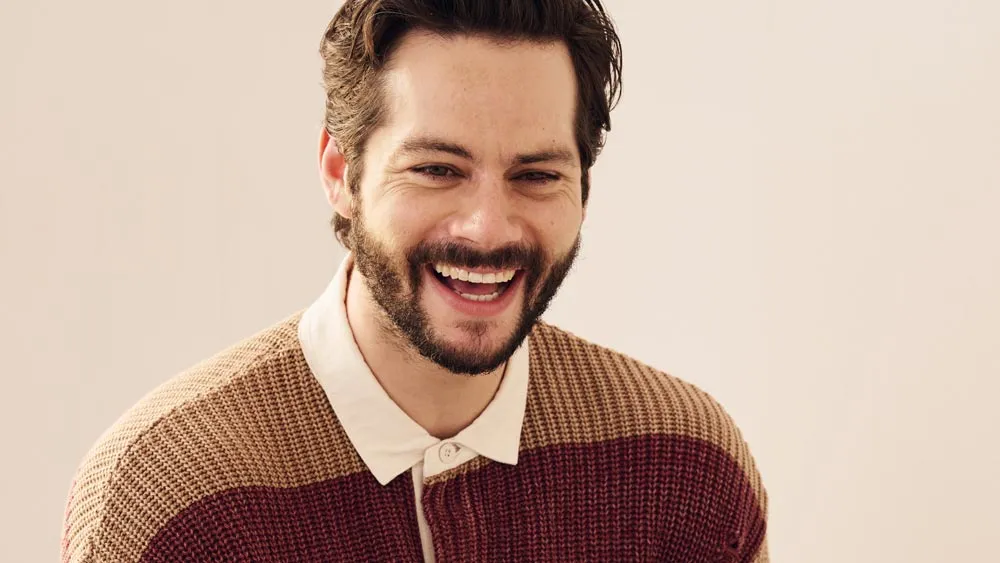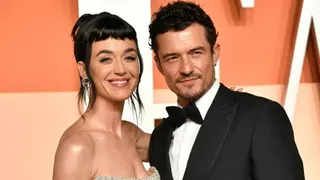June 18, 2017
Our Future: My (First) Time at Cannes
Kyle Mangione-Smith READ TIME: 7 MIN.
As a filmmaker, and one primarily interested in the arthouse at that, having a chance to go to Cannes has always been a dream of mine. The names and films that have come out of it over the years are certainly enticing, but beyond that, Cannes always struck me as elusive in a way that nothing else in the film world seems to match. Every year great films come out of Berlin, Toronto, Sundance, etc., but what makes Cannes what it is goes beyond its films. It's cultivated an air of grandeur and exclusivity that few other festivals match - Cannes is not simply another festival to see films; it's an event, a definitive moment within each cinematic year.
�
In May, I had the opportunity to experience the festival for myself through The American Pavilion's student program. They're a private establishment at Cannes and function as a membership based hospitality center for those within the American film industry. Located on the beach by the festival, the Pavilion offers a place for Producers, filmmakers, actors, journalists and the like to stop for a drink or meal without fairing the packed city outside the festival grounds. As for my internship, I worked as a ticketing assistant. My group's leader, experimental filmmaker Pip Chodorov, would give those of us working for him a handful of tickets each day to distribute. These would go to other students in the program, pavilion members, and if it came down to it, random people standing out on the street looking for a ticket (of which there were plenty).
A view of the Palais du Festival at the 70th international film festival, Cannes,
As for the atmosphere of Cannes I mentioned before, the overwhelming sense of grandeur and importance the festival has finely cultivated was clear from day one. The Palais, a shopping mall sized complex with 20 something theaters ranging anywhere from 25 to 2000 seats, served as the hub for most of the festival screenings. Walk into nearly any part of it and you could just as well mistake it for a set from "2001: A Space Odyssey." Red carpet contrasts stark marble across the hallway floors, and angular architecture with stylish lighting makes the building alone a spectacle to behold. The Lumiere Theatre served as a hub for the festival, being by far the largest theater on site where all the main festival screenings would take place. Underneath the Palais was the film market, where hundreds of distributors would come to try to sell their movies, many of which had yet even to be made.
�
Though as the weeks went by, it became clear that that image of grandeur and refinement only held up as far as you believed it to be true. It struck me that the sense of importance that is so deeply associated with Cannes is only maintained by a haphazard, slack-jawed energy that only the French could pull off. The controversies from recent years over actors being denied entry into screenings of their own films over failure to meet dress code quickly made sense, as the security and staff seemed to be working off no distinct guidelines other than "use your best judgment, and when in doubt say no".� Later on in the fest, security became worried that a bag left outside of a theater could potentially be a bomb, and lacking what seemed to be any standard protocol for such an event, everyone waiting outside the theater for the next screening was shepherded into the far corner of the room, a mere 20 feet from the threat in question. But you'd be damned if they weren't decked in the finest Italian leather and sharply tailored suits to match.�
Sofia Coppola (center) with Elle Fanning and Nicole Kidman.
The sense of prestige is undeniably essential to the festival. The intro sequence that airs before each screening spends a fraction of the time on the actual title card of the festival than it does displaying the names of quote unquote "Cannes directors". And the sense that the festival has ownership over the filmmakers it exposed the world to is very, very real. For example, this happened to be the first year that the festival showed television, with screenings of episodes from Jane Campion's "Top of the Lake" and David Lynch's "Twin Peaks." But the reason for this shift was not due to a recognition of television as an art form, but because of Lynch and Campion's status as "friends of the festival." For as eye-roll worthy as much of this behavior can be, there is a sense that given the festivals roll within the film world it has the status to get away with it.
�
The attendees of the festival are as weird, as fascinating, as self-absorbed, and as oddly detached from the rest of the world as one would expect (which isn't a bad thing in every instance). Walking out of screenings, along with booing as the credits begin to roll, is common practice at the Lumiere. And for many, Cannes isn't seen as an opportunity to experience film, but simply as a way to further one's own career. Conversations between strangers will spontaneously begin and quickly end as the initiator realizes that the other isn't an agent, producer, actor, or whoever else they happen to be looking to make connections with at the festival. But for every opportunist, you'd meet someone incredibly bizarre and interesting with a deep passion for film. Take for instance a distributor and former producer for Michael Haneke, who I had an equally tense and entertaining conversation with after he overheard me trashing Haneke's newest film "Happy End."
Michael Haneke and Isabelle Huppert at the Cannes Film Festival.
But as far as the films went, "Happy End" was the only film that I can say I disliked. Though only a handful managed to wow me, I found nearly everything I saw enjoyable or worthwhile in some way or another. "The Killing of a Sacred Deer" was undeniably the best film I saw, Yorgos Lanthimos follow up to "The Lobster." Given that it's a film I think best experienced knowing next to nothing about it going in, I won't discuss it in depth, but I can say it's one of the tensest and horrifying experiences I've ever had watching a film. Sean Baker's "The Florida Project" was also a standout, an incredibly colorful rambunctious film about characters living in a very tough situation, which in a lot of ways felt like a refinement of "Tangerine." But "Nothingwood," a documentary by Sonia Kronlund about Afghan filmmaker Salim Shaheen, was the surprise of the festival to me, and a film that I worry will likely be severely overlooked.
Colin Farrell in "The Killing of a Sacred Deer."
�
"The Square" by Ruben Ostlund was also a standout, a film about the navel gazing bourgeois in the high art world and their disconnect from the real world, which ironically drove the film's point home when it won the Palme D'or. At that, I couldn't help but question how much posturing might have been behind the jury's decisions. For a festival that only showed three films in competition by female directors and still clings to a heteronormative dress code, it's questionable how kosher the motives were behind giving Sofia Coppola the Director's Award, an award that hadn't been given to a woman for decades prior. This, of course, comes just a year before the festival coming under fire for their representation of women, of course.
Considering all this and reflecting back on the experience, I can't help but feel as if it's impossible to paint an accurate image of the festival truly. It's prestigious, it's exclusive, it's grand, and yet more than anything it's really, really big; so big that any attempt to truly make it any of those things is borderline impossible. There are the main festival and the tightly knit community that's associated with it, but then there's the film market, where not 500 feet from where films like "The Beguiled" and "The Square" premiere you can find a company with a poster for a film titled "Snake Outta Compton," with a giant robotic snake hovering above some generic guys from the hood (yes, that was a real poster and I want to see it).
The poster for "Snake Outta Compton."
Then there's Director's Fortnight, where the sense of exclusivity created by the main festival is thrown to the wind and unknown and first-time filmmakers are celebrated. The Cannes Classics program offers a space for the cinephile to experience lesser-known films from seemingly every culture and period on the big screen. Find yourself invited to any one of the dozens of parties and you'll find out about scenes and people you would never have considered having a presence at the festival.
�
But more than anything, Cannes is a moment for the film world, and regardless of who you are within it, it's impossible to ignore. It's contradiction by its own nature, it's the one, big exclusive event for those that "matter" in the industry, and yet it's the small, grimy, unheard of scenes from the underbelly of the cinematic world that make it run. It's a celebration of the greatest voices in cinema, yet it's hard to say how much of it is even about film. Over my two weeks I was equal parts elated, annoyed, bewildered, and fascinated, and if anything, I think it proved to me that you can never look at film as a microcosm.
Kyle Mangione-Smith is a filmmaker and student living in Boston.






